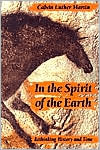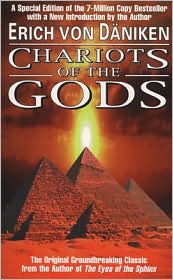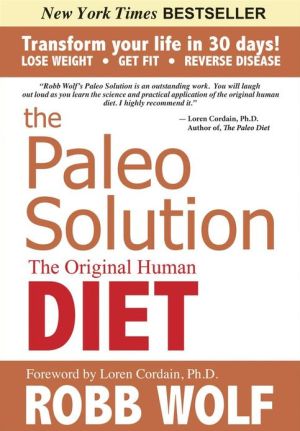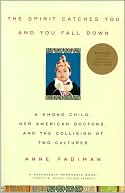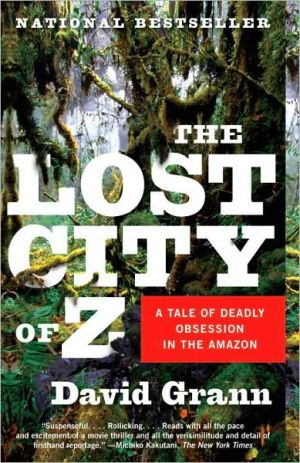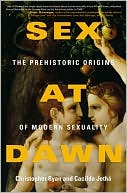In the Spirit of the Earth: Rethinking History and Time
This meditation by an award winning historian calls for a new way oflooking at the natural world and our place in it, while boldly challenging theassumptions that underlie the way we teach and think about both history andtime. Calvin Luther Martin's In the Spirit of the Earth is a provocativeaccount of how the hunter-gatherer image of nature was lost—with devastatingconsequences for the environment and the human spirit.\ According to Martin, our current ideas about nature emerged during...
Search in google:
This meditation by an award winning historian calls for a new way oflooking at the natural world and our place in it, while boldly challenging theassumptions that underlie the way we teach and think about both history andtime. Calvin Luther Martin's In the Spirit of the Earth is a provocativeaccount of how the hunter-gatherer image of nature was lost--with devastatingconsequences for the environment and the human spirit.According to Martin, our current ideas about nature emerged during neolithictimes, as humans began to domesticate animals and farm the land. In thehunter-gatherer mind, animals and plants were spiritual beings and the earth areliable provider. But in neolithic innovations Martin finds the roots of ourown curiously alienated relationship with other living things and with theearth itself. This alienation is revealed not only in our artifice--thetechnology that moves us further and further away from nature--but even in theway we speak about the world. It is revealed most dramatically, perhaps, inthe horrific destruction we have visited on animals and landscapes. Martin sees the shift to agricultural economies as a change in spiritual imagination. This new approach to food getting meant a new understanding ofourselves and the world--a new, powerful image of the self relative to plantsand animals. It led to food surpluses, a population boom, the appearance ofcities and ceremonial centers, and the emergence of priestly classes and rulingelites--in short, to all the achievements, follies, and horrors of"civilization." Martin argues that history--his own discipline--and human centered historicalconsciousness lie at the heart of this ultimately destructiveideology. Notions of order and progress, of a chosen people and linear time, fuel oursense that the world is ours to improve, exploit, and even destroy. We need torediscover the wisdom and sanity of less presumptuous ideas of nature--aprocess that demands a much larger narrative than historians have been writingand telling. Without calling for a return to hunting and gathering, Martinasks if some of what we lost--or left behind--in the distant past might bereclaimed and used again. To make peace with the earth. To make peace withourselves."Many will respond with that oft heard reply, But we cannot go back!To which I respond, But we never left--never left our true, real context, thatis. Homo is still here on this planet earth, abiding in our most fundamentaland necessary nature by its fundamental and necessary terms. We left all ofthat only, really, in our fevered imagination. It all began as an act ofimagination, an illusory image--most fundamentally, an image of fear--and so thecorrective process must likewise begin with an image. Let us re-learn, as hunter-gatherers knew to the core of their being, that this place and itsprocesses (even in our death) always takes care of us--that Homo's citizenship,and errand, rest not with any creed or state, but with 'that star's substancefrom which he had arisen.'"--from In the Spirit of the Earth Booknews Martin (history, Rutgers U.) continues his controversial (but award- winning) career by arguing that our basic notions of nature and divinity developed when we were paleolithic hunters and gatherers. They became suppressed and deformed when we began agriculture, but can be reclaimed to oppose the destructive ideology that has usurped them. Annotation c. Book News, Inc., Portland, OR (booknews.com)
\ Alternative Press ReviewIt just may be a sign that the wind is turning when a Rutgersprofessor of history writes a book (and gets it published)debunking historical time and civilization... Martin finds, inneolithic time consciousness, a key ingredient in the control ofthe natural world, and locates the 'ideological origins of humanbondage' in animal domestication.\ \ \ \ \ \ Hungry Mind ReviewMartin has given us a new map for imagining the world around us and our place in it.\ \ \ \ Alternative Press ReviewIt just may be a sign that the wind is turning when a Rutgersprofessor of history writes a book (and gets it published)debunking historical time and civilization... Martin finds, inneolithic time consciousness, a key ingredient in the control ofthe natural world, and locates the 'ideological origins of humanbondage' in animal domestication.\ \ \ \ \ Hungry Mind ReviewMartin has given us a new map for imagining the world around us and our place in it.\ \ \ \ \ BooknewsMartin (history, Rutgers U.) continues his controversial (but award- winning) career by arguing that our basic notions of nature and divinity developed when we were paleolithic hunters and gatherers. They became suppressed and deformed when we began agriculture, but can be reclaimed to oppose the destructive ideology that has usurped them. Annotation c. Book News, Inc., Portland, OR (booknews.com)\ \
